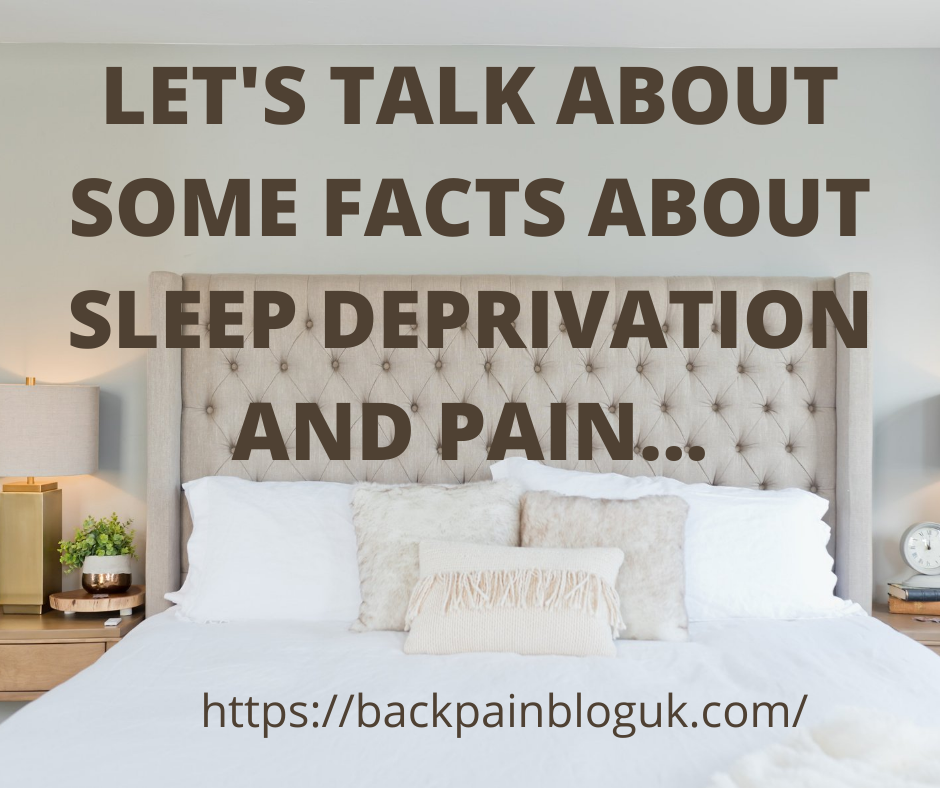It’s Sleep Sunday, let’s talk about sleep, that’s if we are lucky enough to get some. Some facts about sleep deprivation and pain.
Many Fibromyalgia and chronic pain sufferers say they feel lucky if they get 5 hours’ sleep a night.
Do you ever find yourself stuck in a vicious cycle? Pain makes it difficult to sleep, but sleep deprivation means the body cannot repair itself – making the pain worse. Healthline points out that people with chronic pain don’t necessarily see improvements in sleep once their pain is resolved.
In fact, the pain often only continues to worsen until sleep is addressed. This may be related to the fact that some people with chronic pain may battle anxiety which in turn may cause stress chemicals such as adrenaline and cortisol to flood their systems. Over time, anxiety creates overstimulation of the nervous system, which makes it difficult to sleep.

The National Sleep Foundation points out that sixty-five percent of those with no pain reported good or very good sleep quality, while only 45 percent of those with acute pain and 37 percent of those with chronic pain did the same. Additionally, 23 percent of those with chronic pain reported higher stress levels, compared with 7 percent of those without pain.
Those with acute or chronic pain are more likely to have sleep problems impact their daily lives. Among people who’ve had sleep difficulties in the past week, more than half of those with chronic pain say those difficulties interfered with their work. That drops to 23 percent of those without pain. People with pain are also far more apt than others to report that lack of sleep interferes with their mood, activities, relationships and enjoyment of life overall.
People with pain also feel less control over their sleep, worry more about lack of sleep affecting their health and exhibit greater sleep sensitivity. They’re more likely than others to say environmental factors make it more difficult for them to get a good night’s sleep. These factors include noise, light, temperature and their mattresses alike, suggesting that taking greater care of the bedroom environment may be particularly helpful to pain sufferers.

While both chronic and acute pain relate to lost sleep, the survey indicates that chronic pain is an especially powerful problem. Indeed, nearly one in four people with chronic pain, 23 percent, say they’ve been diagnosed with a sleep disorder by a doctor, compared with just 6 percent of all others.
Sleep station comment that It’s a never-ending battle and a vicious circle between sleep disturbance and pain. In some there may be an element of chicken and egg – is the pain causing the sleep problems or is the poor quality of your sleep making your pain feel worse? Pain can, for example, be the main reason that you wake in the night, and these interruptions during the night can lead you to get less sleep, and most important of all, less good quality restorative sleep. This sleep deprivation can lower your pain threshold and your tolerance for pain and thus can make your pain feel worse.
Source: Healthline, The National Sleep Foundation, Sleep Station




WE know the feeling.
LikeLike